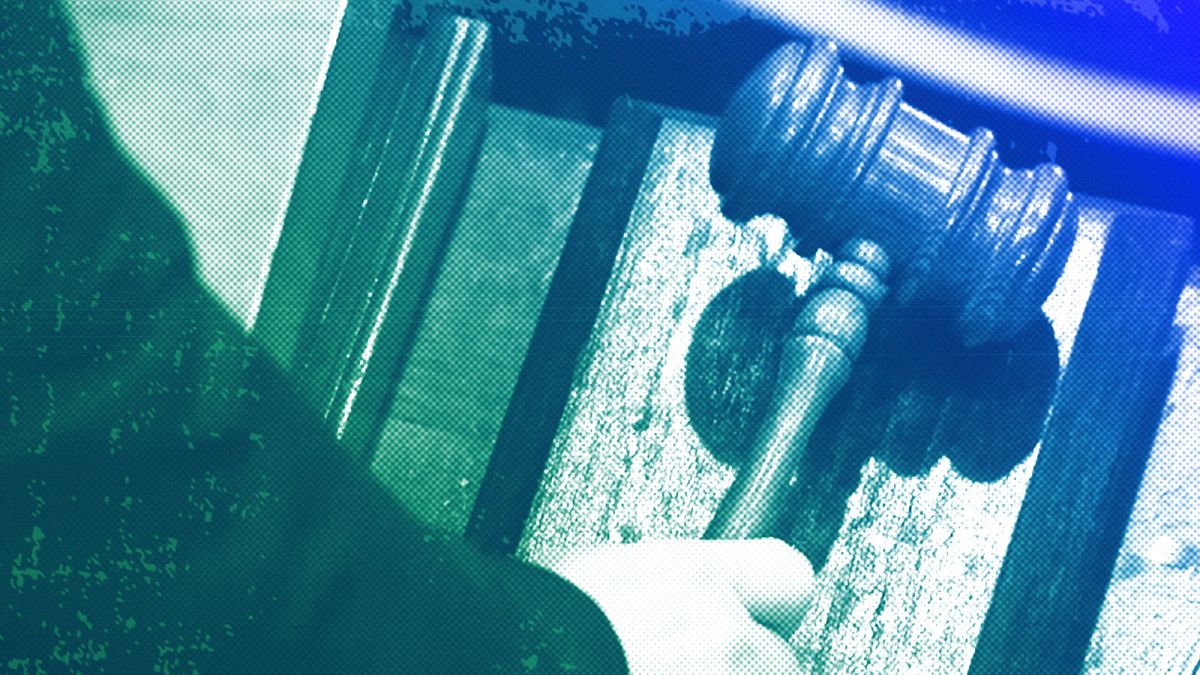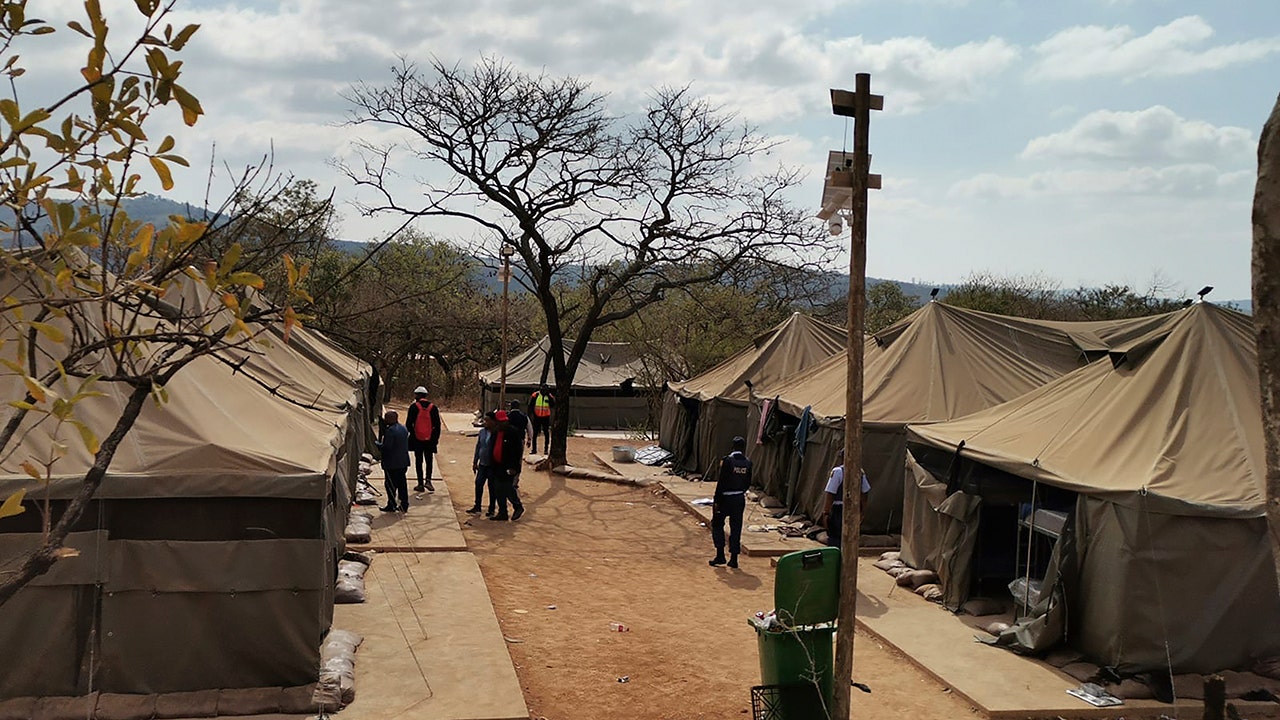World
With lawfare on the rise, courts are becoming a venue for politics

The opinions expressed in this article are those of the author and do not represent in any way the editorial position of Euronews.
Usually with no leg to stand on, the objective of these claims is to disrupt and clog the system and cause chaos, Pieter Cleppe writes.
Long gone are the days when politics was confined to parliaments. Apart from the growingly politicised and polarised media, the courtroom is increasingly becoming a political venue, with third-party litigation funding being particularly concerning.
Both in Europe and the US, there has been increased scrutiny of third-party litigation funding.
This is a phenomenon where claimants in court cases no longer fund their own cases. Instead, they are bankrolled by investment firms, who basically see it as an attractive, if insecure, investment.
Bloomberg Law recently disclosed how Russian billionaires close to President Vladimir Putin have been secretly pouring money into US courts through third-party litigation funding in a bid to contest the sanctions they have been subject to.
The gist is that by investing millions without even showing their face in court, some malevolent actors have found lawfare a useful tool to laugh in the face of law and justice and syphon their money across the border while doing it.
Chinese claims are now targeting intellectual property in the US
In another example, a company based in China has been clandestinely funding intellectual property lawsuits against Samsung, using a Florida tech company as a front, to claim that the South Korean giant used its intellectual property in its popular audio products.
The essence of the problem here is that the funders “often manipulate civil litigation for their own purposes”, according to a letter to the heads of a US congressional committee in October by major pharma companies Bayer and Johnson & Johnson.
In the letter, they complain that the litigation finance industry “goes to great lengths to operate in complete secrecy,” demanding more transparency.
The fear here, backed by the US Chamber of Commerce, is that litigation financing could allow Washington’s adversaries to obtain confidential information about sensitive technologies.
In any case, US House Speaker Mike Johnson and Senator John Kennedy, have already taken legal action, having submitted a legislative proposal that would regulate foreign entities’ ability to fund litigation.
Business groups like the US Chamber of Commerce support this, as they believe the shortage of available information about who is financing cases opens the door for foreign adversaries to undermine US national security.
An EU directive is in the works
Also in Europe, legal action is on the way. Last summer, the European Parliament recommended to the European Commission to propose a Directive on the regulation of third-party funding in the EU, aptly named “Responsible funding of litigation”, with the goal of regulating third-party funders’ financing proceedings in the EU.
If adopted, it would create a minimum standard for third-party funders in the EU and establish a supervisory authority granting permits to funders and monitoring their activities.
It would also hold funders jointly liable with the funded disputing party to pay the cost of the proceedings that may be awarded, impose an obligation on funders to adequate financial resources to fulfil their liabilities under the funding arrangement, impose a fiduciary duty of care the funder owes toward the funded disputing party, establish specific disclosure and transparency obligations to inform competent judicial or administrative organs of the existence of a funding arrangement and limit the financial stake of funders to 40% of the amount of compensation awarded, save for exceptional circumstances.
The directive was spurred on by a number of questionable claims that have seen a spike in recent years. Usually with no leg to stand on, the objective of these claims is to disrupt and clog the system and cause chaos, with profits nothing more than a side quest.
Yet, sometimes, a case like this can end up hurting an entire country’s GDP, too.
The Sultanate of Sulu case continues to raise eyebrows
A prominent example in Europe of litigation funding is a case brought by a Spanish private arbitrator, Gonzalo Stampa, who demanded Malaysia to pay a $14.9 billion (€13.7bn) arbitral award to a group of individuals claiming to be heirs of the last sultan of Sulu, a territory now belonging to Malaysia. Kuala Lumpur rejected the claim, arguing the case represented a challenge to its sovereignty.
The legal claims of the sultan’s heirs had been financed by a global litigation and arbitration finance firm, the London-based Therium.
Even if there was no link to Spain, the claimants still brought the case there to the judicial authorities eager to find any judicial forum to get their way. As a result, Stampa, who specializes in international mediation, was appointed by the Civil and Penal Chamber of Spain’s Supreme Court (TSJM) as the arbitrator of the case.
Following legal challenges by the Malaysian government on the grounds that the required procedure had not been followed, Spain’s Supreme Court ruled in June 2021 to remove Stampa from the case, thereby granting the Malaysian government’s request for dismissal.
While Stampa was ordered to end the arbitration several times, the arbitrator ignored those orders and even changed the arbitration venue from Madrid to Paris on disputable legal grounds.
There, he issued his final ruling, granting the massive award, making it the second highest ever rendered, and amounting to 1% of Malaysia’s GDP. It’s peculiar that such important cases tend to involve multiple arbitrators, rather than just one, with the entire proceedings including payment to Stampa apparently funded by Therium.
Later, an appeal in France overturned the decision, and remarkably, Stampa was found guilty of contempt of court for failing to comply with an earlier court ruling ordering him to drop the complex legal battle.
It’s time to stop and think what to do next
Imposing to disclose who’s funding a court case may deter outside investors and mean “less access to legal finance”, but that hasn’t stopped legal action being initiated both in Europe and the US related to the practice of third-party litigation funding.
Looking at the whole range of extra bureaucracy the European Parliament has in mind, perhaps it is important to take a pause.
Allowing judges to decide on a case-by-case basis to what extent claimants need to be transparent, particularly in a contentious case where national security could be at risk, might just be a better way forward.
Pieter Cleppe is the editor-in-chief of BrusselsReport.eu and a former attorney-at-law.
At Euronews, we believe all views matter. Contact us at view@euronews.com to send pitches or submissions and be part of the conversation.

World
Celine Dion Makes Triumphant Comeback at Paris Olympics Opening Ceremony — Watch Full Performance

ad
World
95 Libyan nationals arrested in South Africa at suspected secret military training camp

South African police arrested 95 Libyan nationals in a raid on a suspected secret military training camp on Friday and authorities said they were investigating whether there were more illegal bases in other parts of the country.
The camp was discovered at a farm in White River in the Mpumalanga province, about 360 kilometers (220 miles) northeast of Johannesburg, police said.
ELEPHANTS KILL TOURIST IN SOUTH AFRICA AFTER HE TRIED TO GET CLOSE TO TAKE PICTURES
National police spokesperson Athlenda Mathe said in a post on the social media site X that the Libyans stated they had entered the country on study visas to train as security guards, but police investigations suggest they have received military training.
The Newzroom Afrika TV news channel broadcast pictures of the site of the arrests, showing a military-style camp with large green and khaki tents set up in a row. Dozens of men were seen lining up as they were arrested. They were wearing civilian clothing.
Local government official Jackie Macie said investigations were ongoing and the owner of the farm would be questioned. He said authorities received information that there were similar secret camps near two other towns in Mpumalanga province.
A camp where 95 Libyan nationals were arrested on suspicion of running an illegal military camp are seen lining up after their arrest on Friday, July 26, 2024 in White River, South Africa. Police say that 95 Libyan nationals were arrested on suspicion of receiving training at a secret military camp in the north of the country. (AP Photo/Bulelwa Maphanga)
The province borders neighboring countries Mozambique and Swaziland and is an area of concern for South African authorities with regards to illegal immigration.
Police and authorities have not said whether the camps are suspected of being connected to a particular group or conflict.
Macie said investigations would establish if there was a network of camps in South Africa and show “why they are here doing military training in our country.”
Police said the men may be linked to crimes reported in communities close to the farm in recent months.
“We have serious cases which have been opened with the police, including cases of rape and armed robberies, which complainants claim were committed by unknown foreigners who seem to be of Asian descent,” said police spokesman Donald Mdhluli.
“We take what we have found here today very seriously because we don’t know who was training them, what were they being trained for and why that training is happening here in South Africa. It may be a threat not only to South Africa but also to the entire southern Africa region.”
Police said the operation to arrest the Libyans and close down the camp began two days ago. Macie said the Libyan nationals had been in the country since at least April.
“The 95 individuals taken into custody are all Libyan nationals and are currently being questioned by the relevant authorities,” Mpumalanga acting provincial police commissioner Maj. Gen. Zeph Mkhwanazi said in a statement.
Mdhluli, the police spokesman, said the country’s security regulator had confirmed that the kind of training that appears to have been taking place at the camp was well beyond the scope of training for security guards.
“The kind of equipment we found here shows that there was intense military training taking place here. This was basically a military base.”
World
Passengers face long, uncertain wait at stations amid rail disruption

A deliberate fire in a signal box about 60 km south of Lille caused the disruption on the northern high-speed line, with traffic halted around 5 a.m. local time on Friday.
Travel was severely disrupted in Lille on Friday, one of the stations affected by the sabotage that hit major French rail lines ahead of the Paris Olympics opening ceremony.
Many passengers waited with hope that soon turned to resignation.
“We’ve been waiting since 10:38 a.m. for the 11:38 a.m. train, and now we’re just waiting for it to arrive at 2:08 p.m.,” said Delphine, one of the stranded passengers.
“It’s still quite a delay, and we’ll be even later since we’re on a secondary route. I work in Avignon at 9 p.m., so it’s going to be very, very tight. We have a concert tonight — will it even happen? This is all very confusing, and we don’t understand what’s going on.”
For one traveller, this was a rough start to the holidays. “The worst case would be if the train is cancelled entirely and we have to buy new tickets for next week. It would shorten our already brief vacation. That would be a huge problem,” said Hippolyte.
When asked if he had been informed of the delays, Hippolyte said he received the notification just before departure.
“At around 10 a.m. this morning, we were told we were an hour late and would be leaving at 1 p.m.”
“It just keeps getting later as the day goes on. Every time we approach the new departure time, it gets pushed back another hour and a half, or half an hour each time.”
A deliberate fire in a signal box about 60 km south of Lille caused the disruption on the northern high-speed line. Traffic was halted around 5 a.m. on Friday.
The recent acts of sabotage on the rail network highlight that the Olympic Games are turning France into a prime target.
The attack disrupted the transport system on the opening day of the Games, causing delays of up to two hours or even cancellations that affected hundreds of thousands of passengers nationwide.
Authorities in Paris have said they are deploying substantial human resources to counter any threats and to ensure the safety of the events.
-

 World1 week ago
World1 week agoOne dead after car crashes into restaurant in Paris
-

 Midwest1 week ago
Midwest1 week agoMichigan rep posts video response to Stephen Colbert's joke about his RNC speech: 'Touché'
-

 News1 week ago
News1 week agoVideo: Young Republicans on Why Their Party Isn’t Reaching Gen Z (And What They Can Do About It)
-

 Movie Reviews1 week ago
Movie Reviews1 week agoMovie Review: A new generation drives into the storm in rousing ‘Twisters’
-

 News1 week ago
News1 week agoIn Milwaukee, Black Voters Struggle to Find a Home With Either Party
-

 Politics1 week ago
Politics1 week agoFox News Politics: The Call is Coming from Inside the House
-

 News1 week ago
News1 week agoVideo: J.D. Vance Accepts Vice-Presidential Nomination
-

 World1 week ago
World1 week agoTrump to take RNC stage for first speech since assassination attempt
















